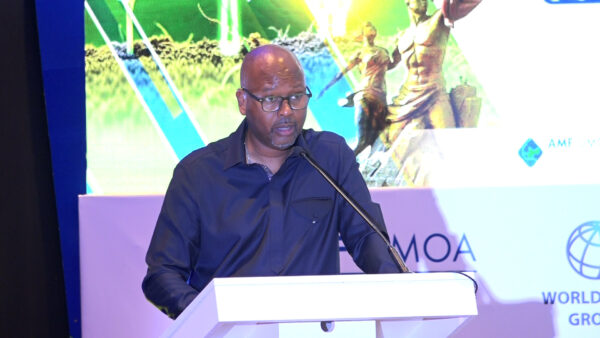During the 2nd edition of the West Africa Sustainable Finance & Investment Forum (WASFIF 2025), held under the theme “Green finance, a financing instrument for the economies of the Union”, Olivier Buyoya, Regional Director for West Africa at the International Finance Corporation (IFC), delivered a presentation on the theme “Sustainable finance: history, future, challenges and opportunities”. This was an opportunity for the Burundian to provide an overview of the evolution of sustainable finance on a global and regional scale, highlighting the transition from the first socially responsible investment funds of the 1980s to the era of green and social bonds post-Paris Agreement.
According to Mr. Buyoya, global finance is no longer limited to financing growth: it now aims to generate long-term value and promote a more responsible economic model.
In 2024, green, social, and sustainable bond issuances reached a record level of $8 trillion, illustrating this paradigm shift.
However, the needs are still enormous: by 2030, global climate financing is expected to exceed $6 trillion annually, while only $1.5 trillion was mobilized in 2024. Africa alone has only attracted $44 billion out of an estimated $190 billion needed. “More than 80% of current climate financing still comes from the public sector,” he noted, advocating for increased involvement of the private sector.
The SFI expert identified three major priorities to accelerate the transition: credibility and comparability of ESG data to enhance transparency and investor confidence, financial inclusion, especially for SMEs, women, and youth, who are still largely underfunded despite their economic potential, and technological innovation, through AI and big data, to better assess climate risks and combat greenwashing.
Advancements in West Africa
The West African region is already making progress in this direction. In Côte d’Ivoire, the issuance of a $1.1 billion sustainable sovereign bond in 2024 did not go unnoticed, while in Senegal, efforts are focused on green energy, forestry, and sustainable agriculture, with support from the IFC. The BOAD paved the way in 2021 with the first African Sustainability Bond of €750 million. The BIDC and BOA Senegal followed suit with local issuances of green and social bonds, confirming the credibility of the regional market.
To consolidate these achievements, Olivier Buyoya called for action around three axes, including strengthening transparency and disclosure of climate-related data, structuring the sustainable bond market to make it more accessible and attractive, and mobilizing more private capital, an essential condition to bridge the financing gap.
“The needs for a sustainable transition far exceed public resources. It is necessary to mobilize national and regional investors to build a more inclusive and resilient finance,” he concluded.
Olivier Buyoya’s message is clear: sustainable finance is no longer an option, but a strategic necessity for the economies of West Africa. Between innovation, inclusion, and transparency, the region now has major assets to transform climate challenges into development opportunities and job creation.


